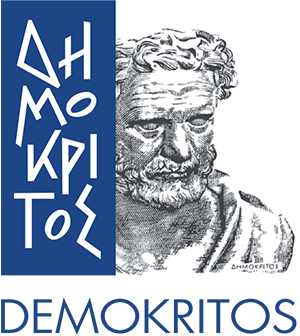Theodorou Andreas

Ph.D Candidate
+30 210 6503769
Max Planck Institute for Plasma Physics (IPP), Germany
Andreas Theodorou received his BSc in Physics (2014) and his MSc in Materials Physics (2016) from the Physics Department of the National and Kapodistrian University of Athens, Greece (NKUA). In 2017 he joined the Institute of Nuclear and Radiological Sciences and Technology, Energy and Safety of NCSR "Demokritos" as a PhD student within the framework program EUROfusion. His thesis title was “Interactions between radiation defects and solute atoms in ferritic steels based on the binary Fe‑Cr system”. Ferritic steels are considered the main choice as structural materials for the future fusion power plants. Iron alloys with different types and concentration of impurities are irradiated with proton in order to create radiation defects. The evolution of defects and their interaction with impurities are observed by in-situ electrical resistivity measurements during subsequently annealing process. Andreas defended successfully his PhD thesis at the Department of Physics of the NKUA in October 2022. Since November 2022 he works as a post-doctoral researcher at the Max Planck Institute for Plasma Physics (IPP), Germany, studying radiation damage and hydrogen retention in materials.
PhD Short Description
Objective of the project is the study of the interactions between radiation defects and solute atoms in ferritic steels based on the binary Fe‑Cr system. The experimental results will be compared with theoretical prediction in order to validate theoretical models.
Ferritic steels are considered the main choice as structural materials for the future fusion power plants. The impurities solute atoms such as carbon (C) and nitrogen (N) are main components in steels that define their mechanical and thermal properties and play also an important role to the configuration of their microstructure. During the ion irradiation the interaction of energetic particles with matter can cause atomic displacements leading to several types of defects such as vacancies and interstitial atoms. After their creation defects can diffuse and interact with solute impurities resulting to changes in microstructure and therefore to macroscopic properties.
In order to study the radiation defects, samples of ferritic alloys are irradiated by protons at NCSR “Demokritos” TANDEM accelerator at the facility IR2. The irradiations are performed at cryogenic temperature so the defects are immobile into the sample. Subsequently, through a post-irradiation thermal annealing process of the samples the defects can diffuse and their evolution is observed by in-situ electrical resistivity measurements. Information about the interactions between radiation defects and impurities can be revealed by comparing the resistivity recovery spectrum of samples with different impurity concentration.

